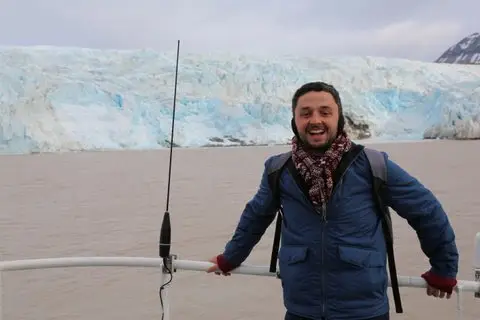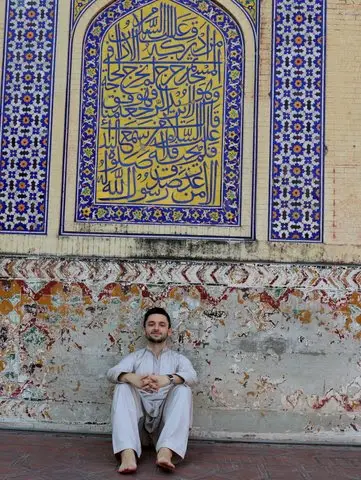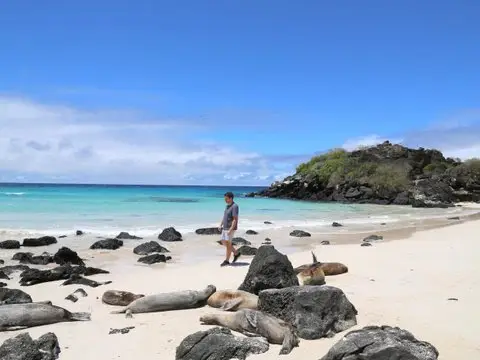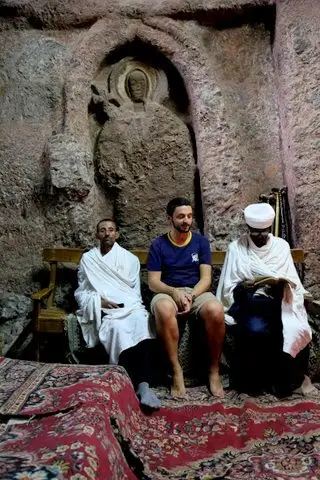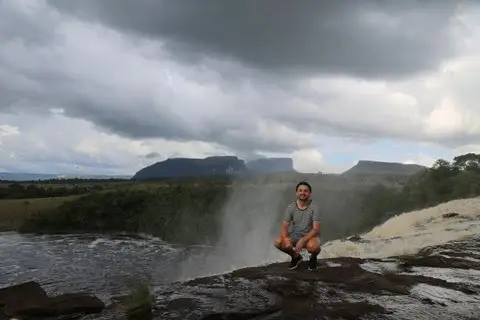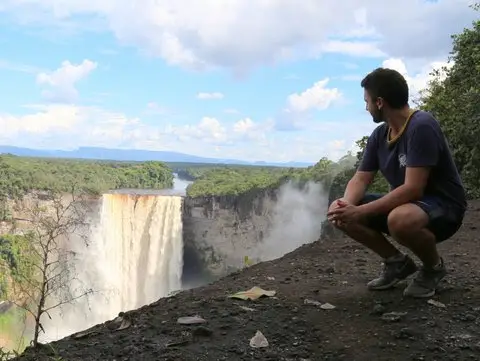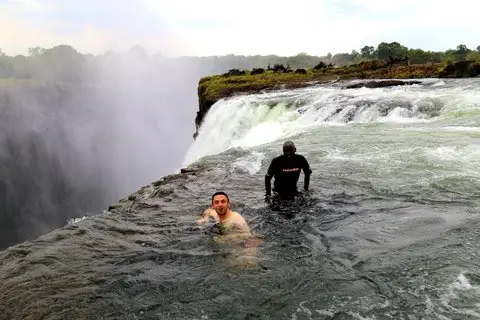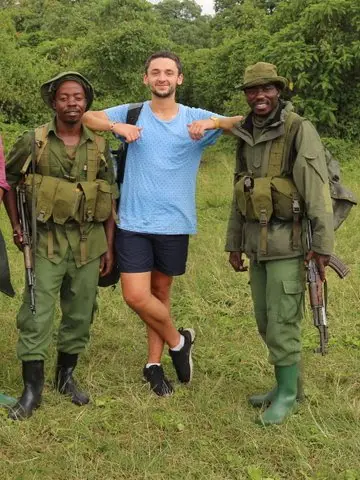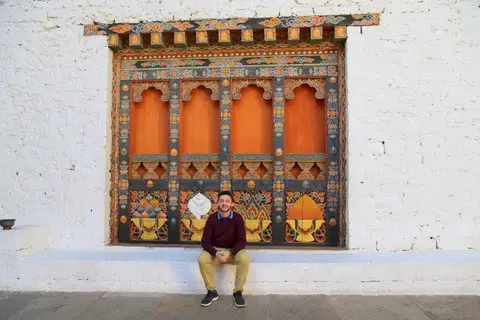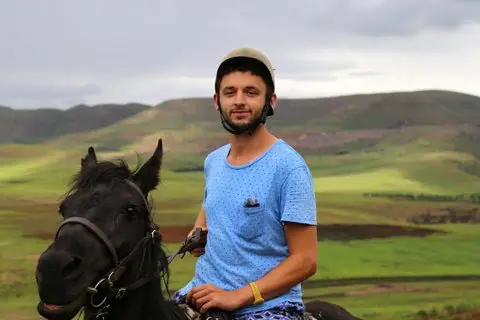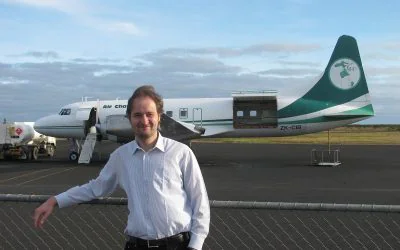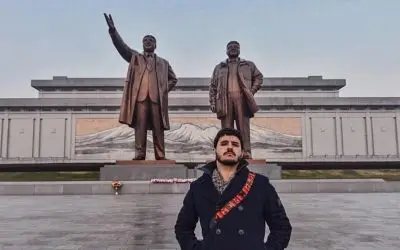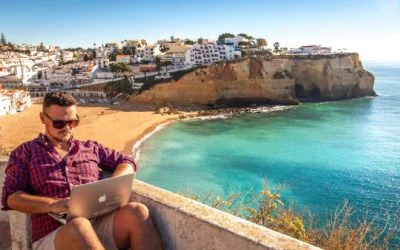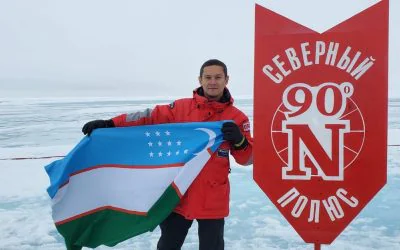Daniel is one of the more eager world travellers, having already seen 3/4 of the UN countries – and almost 400 of our regions – before his 27th birthday.
Daniel, tell us a little about your background and your early life.
I’m 26 years old, I grew up in Australia but haven’t spent much time there in the past few years. My family traveled a fair bit when I was younger, so I got a real taste for the world around me and a general curiosity for other cultures. I spent a long time at university (around 7 years), studying law and languages. When I was younger, my room was filled with globes, flags of the world and travel books. I have a clear memory of sitting in a bookstore as a young child and reading Lonely Planet guide books. So naturally I made the most of every break I had from university and hit the road. I went on exchange three times and spent every summer crossing borders. In 2016, I moved to Hong Kong to begin a new job and to take advantage of a more strategic geographic position in the world. I hit my 50th country (Malta) just after my 21st birthday, my 100th (Algeria) at age 23 and recently passed the 150 mark (Haiti).
Do you feel that being Australian has influenced your personality and your way of travelling in a certain way?
This is a hard question to answer. I guess you would say I’m pretty friendly and chatty, both of which are normal hallmarks of being Australian. Otherwise, the more I think about it – probably not.
My mother is South African and in a totally unexpected way, I found that aspect of my background significantly impacted on my travels in Africa. I still find this quite bizarre – especially given that my mother’s family are not South African and I don’t think she particularly identifies as South African very much. But yet, I was raised on stories of her childhood in this distant land. Everything about these stories used to fascinate me, from her tales of safaris to life under apartheid. I was always certain that I would not visit Africa until I was ‘ready’ and so I did not step foot on the continent until relatively late in my traveling timeline (granted – this was still at the ripe old age of 22). I can’t pinpoint the moment or the time, but something during my first trip to Africa ignited an emotional connection to the continent of my mother’s birth. Suddenly a country that was a far-away land of my childhood stories became a small part of my identity. This could probably also be interpreted as the cries of a homesick mummy’s boy.
You are only 26 and have already done 3/4 of the world’s countries. What makes you ‘hurry’ in such a way and what motivates you to complete the list?
I don’t think I would say I’m in a “hurry” as such. Generally, I just love being on the road and I don’t get sick of living out of a suitcase. I’ve always been fascinated by the concept of countries and independent states and I think I’m more driven by an interest in the individual country than by simply ticking them all off. These fascinations especially drove my early travels and the places I was intent on visiting. For whatever reason, 9 year old me was always interested in Uzbekistan and so, 20 year old me finally made it there and in many ways, it felt long overdue. In saying that, there are countries I return to quite regularly – although perhaps you could interpret this as my own personal mini-lists. I have now visited 26 out of 33 provinces in China and this past year I have made my sixth visit to Indonesia and second visit to Colombia. Most likely that it’s probably an addiction – my bedtime reading consists of Lonely Planet guidebooks, my morning routine involves checking Skyscanner, Google flights and new flight route announcements.
What have been some of the ups and downs of your journeys so far?
I imagine like many of the people who have the honour of being interviewed by NomadMania, I could probably write a number of books covering my travel experiences.
As a generalization, I think my travels have benefited from the fact that I enjoy what I call, ethnical ambiguity. Depending where I am in the world, people generally think I’m Arab/Turkish/Brazilian/Pashtun and anything in between. In many places this has given me the opportunity of exploring wherever I am completely unhindered by the stares normally afforded to foreigners. On a recent trip to Pakistan, there was really never a moment where I felt uncomfortable. I was never even given a second look and was able to explore the backstreets of Lahore without attracting any attention. There is a certain joy to see the confusion on the paratha man’s face when I wasn’t able to order my food or when young sellers would approach me offering goods in Pashtun rather than Urdu.
This has also afforded me the opportunity to experience certain areas in the truest sense possible. In mid-2014 I undertook a longer trip through the Uyghur towns of Xinjiang’s southern Silk Road. Beginning in Cherchen, I made my way overland to Kuqa. The level of cultural integration I was afforded was unlike anything I had experienced previously – I could slide in and out of mosques, joined an Iftar in Hotan and wander amongst the mudbrick houses and steamy souks, where hijab-clad women mingled with donkeys carrying loads of watermelons. I received sharp reprimands for drinking water during Ramadan, which was followed by a fairly funny apology once they realized I wasn’t Muslim. On the buses around south Xinjiang, every few hours we would stop at a checkpoint – whereupon a police officer would enter the bus and I would be told to get off with the Uyghurs. Without fail, I was included every time in these selections. There’s no need to go into detail of the everyday lives of Uyghurs in Xinjiang, but I do feel extremely privileged to have been given a brief insight.
Obviously, it isn’t always that exciting. As I imagine most travelers on this website can understand, traveling alone in the underdeveloped world is exasperating, trying and often difficult. Some of the downs include being held up by border officials looking for some extra cash (Cote D’Ivoire, Togo etc.) or simply for just being too suspicious (Tunisia). In the Gambia, the border officials took me to a room and brought out a very official print-out that stated I had to pay a $300 ‘border fee’ immediately in cash. Upon my resistance, I was told that if I did not pay this fee I would be considered to have entered Gambia illegally. After about 2 hours, some negotiation and the realization that I only had a certain amount of CFAs on me, this ‘border fee’ was miraculously reduced and I was allowed to leave the office.
Sometimes traveling alone puts me in situations I’d rather not be in. Due to a sheer amount of bad luck, I found myself stranded in the Fann Mountains in Tajikistan without any cash. This only got worse when the driver I hitched a ride with was extremely drunk. Now it doesn’t take much to realise that being in an old Soviet car with an intoxicated Tajik man on the edge of a mountains for a number of hours is not a good idea. The problem was, my driver refused to stop the car and let me out. Needless to say, I would not recommend attempting to jump out of a moving vehicle – especially where the roads aren’t paved and you’re literally hugging the cliff-side. In saying all of this, I would say I’ve been quite lucky and had a very limited number of near-death encounters (although certainly more than I would like).
Which place – if any – has been markedly different to what you expected of it before?
I was in Venezuela this year right after the new currency was introduced and it was easily one of my best trips in a long time. The logistical challenges of visiting Venezuela were confronting to say the least. Very few flights in and out of the country, the economy in tatters and the need to ensure my own security. The new currency meant that cash was in very short supply, so I was warned that even if I had USD, nobody would be able to exchange it for actual physical change. Given the crazy rate of daily inflation and the difference between the official and black market rates, I needed to exchange money everyday I was there.
I had visited Ecuador before coming to Venezuela, where, most street corners were full of Venezuelans begging for money and food. Indeed, most things you read about Venezuela are true – the supermarkets are empty, the pharmacies are empty, shops are boarded up, whole streets and factories are clearly just abandoned. There is so little public transport and infrastructure, which I think stems from the fact that if anything needs repair – it gets abanonded. Political propaganda covers the streets and Chavez is “eternal”. Every bank you drive past has a line of about 80-100 people outside, just trying to get some cash. The banks without lines simply mean they have no cash.
However, what was markedly different to what I expected was the warmth of a country going through such difficult times. The kind nature of Venezuelans was unlike anything I’ve experienced in recent travels. People I had just met invited insisted that I stay with them, eat with them and visit them often. Every meal Venezuelans would approach me and insist I sat with them rather than eat alone or suddenly someone would walk over with a plate of tequeños and insist I try some Venezuelan food. Canaima National Park would have to be one of the most beautiful corners of South America. The trees are filled with birds of all types of birds and every corner has another waterfall. Cities like Ciudad Bolivar are waiting for tourists, with colonial beauty reminiscent of other great cities in Latin American. The old colonial centre was entirely unpreserved (what a surprise) and very colourful. Unlike other colonial centres in Latin America – there was no atmosphere, no music, no street food or trinket shops. Rather, the whole old centre was engulfed in an air of melancholy. The city had experienced some terrible flooding earlier that week (this poor country!) and many streets were still closed off. I visited the museum in Ciudad Bolivar and the museum guide was so excited to practice his English that he took me around town for the rest of the day. When I tried to pay him, he refused (reminder – this is a country where people have zero money!) because he was just so happy to see a foreigner (the last one had come in January).
So in many ways Venezuela was the depressing basket case that I expected. However, it also exceeded all my expectations in the warmth and hospitality it offered despite the terrible circumstances it finds itself in.
Do you tend to travel alone or with friends/groups etc? Why?
I generally travel alone, although I have traveled with friends on occasion. Both have their benefits and drawbacks. I find traveling alone really allows you to be completely immersed in wherever you are, as you are constantly watching, listening and integrating (whether you like it or not). It also means that you often meet new people, which you might not necessarily do when you’re traveling in a group. Sometimes we just hang out for the day, but other times I have ended up traveling with people for weeks on end. Regardless, some of my best friends in life have been people I have met on the road. Traveling alone can have its downside – in particular when you get sick and just need someone to handle the logistics. When I was lucky enough to get Zika in Honduras or food poisoning in Morocco, I really could have done with some TLC!
Given your young age, are you very active online regarding your travels? Why or why not?
I guess the answer is somewhere in between. I’m fairly active on Instagram (@dhersz) and am a bit of a instastory addict. Otherwise, I generally don’t post much to Facebook or Youtube. The truth is that when you’re on the road, there’s generally no decent wifi to handle high levels of online activity.
How well do you know your native country? Any lesser known, hidden Australian gems you can recommend?
I think I’ve visited many of Australia’s popular tourist spots, but I am still very keen to properly explore the West Coast.
I think what really distinguishes Australia from much of the world is the uniqueness of its nature. The landscapes you find in Australia generally cannot be found elsewhere in the world. I particularly love the Outback and Top End – where everything stereotypical about Australia merges into one –red sand, intense heat, rock formations, animals, birds, bugs, stars, outback pubs and some of the only opportunities for visitors to access and learn about Indigenous culture. Right before moving to Hong Kong I did a road trip from Uluru to Alice Springs, via Kings Canyon and the West Macdonnel Ranges. The magic really hits you once your phone coverage stops and you’re driving on an unpaved red earth road, with nothing but sand and the occasional kangaroo.
In terms of hidden gems, I really like the Grampians National Park, which is around 3 hours northwest of Melbourne. I always recommend visitors to go here as I think its probably the closest thing to an ‘Australian safari’ with the highest density of animals that I’ve ever seen in Australia. The whole area is swarming in kangaroos, wallabies, emus, echidna, lizards and if you’re lucky – the occasional koala or platypus. I did a camping trip out there a few years ago and every morning we woke up completely surrounded by perhaps 20 kangaroos snooping for food. As soon as we would come out, they would all start hopping away.
So what are your travel plans for early 2019?
I’m planning to visit the Marshall Islands, Micronesia (Chuuk and Pohnpei) and Palau over Christmas. For early next year, I’m hoping to visit Papua New Guinea, Mongolia and the Solomon Islands – and perhaps a little Philippines getaway too.
If you could invite any four people to dinner from any time in history, who would you invite and why?
1. Martin Booth, for his tales of a childhood lived in colonial British Hong Kong. I’m always curious to learn about the development of Hong Kong and hear about the pre-1997 world;
2. Orhan Pamuk, to hear about the dichotomy of Turkish society and the changes he has witnessed in his lifetime;
3. Diego Rivera, for all things Mexico: murals, Frida and the 20s; and
4. Anna Akhmatova, to hear about life as a writer in Stalinist Russia and the siege of Leningrad.
I think these four would get along quite well. Pamuk and Booth would have great chats in relation to cultural clashes and/or the synthesis of Asia and Europe, whilst Rivera and Akhmatova could discuss the arts and Socalism, and of course, Soviet Russian politics. I’m sure Pamuk would have an opinion on all this too. I’ll most likely just sit back and watch.
The photos in this interview are from Daniel’s personal collection and we thank him for sharing them with us here at NomadMania!
